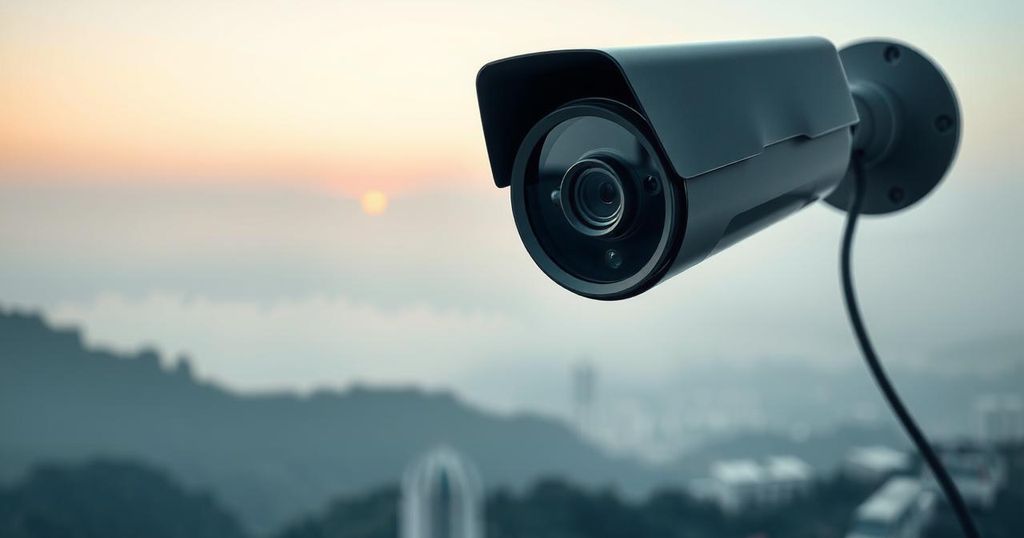Exploring the Implications of AI Surveillance in Uganda

China’s involvement in Uganda’s AI surveillance raises concerns over privacy and civil liberties. The Safe City project, implemented with Huawei, includes thousands of cameras aimed at enhancing security. Critics fear the potential for abuse in a country with a history of repressing dissent, emphasizing the need for legal safeguards. Similar trends in neighboring countries illustrate broader regional issues around the use of AI surveillance.
This article, part of Unite.AI’s series on international AI surveillance, explores the case of Uganda, where AI surveillance has expanded significantly under the guise of national security. The significant partnership with Chinese technology giant Huawei has raised concerns over privacy and civil liberties amid the deployment of thousands of surveillance cameras equipped with facial recognition across the country. Critics fear the potential for abuse of these technologies, especially given Uganda’s history of prosecuting dissenters in military courts.
The introduction of CCTV surveillance in Uganda was initiated following a spike in violent crime in 2017, including the assassination of a senior police officer. President Yoweri Museveni directed security agencies to install surveillance systems across urban areas, leading to the establishment of the Safe City project in 2018. This initiative, valued at approximately $126 million, started with the installation of over 3,200 cameras in the Kampala Metropolitan Area, with plans for national expansion.
The ownership structure of Huawei raises questions due to its unique arrangement, where approximately 99% is owned by a trade union committee representing employees. Although the company claims independence from the Chinese government, Huawei’s founder, Ren Zhengfei, has historical connections to the People’s Liberation Army and the Chinese Communist Party. This relationship has led to skepticism regarding Huawei’s complete autonomy from state influence.
Ugandan authorities argue that the AI surveillance system is essential to enhance public safety and combat rising crime rates. They report early successes, claiming the surveillance cameras have significantly assisted in early crime investigations, contributing to the solution of numerous criminal cases. However, the system’s swift implementation has prompted significant critiques from civil society regarding its potential abuse and lack of privacy protections.
Opposition leaders and privacy advocates have voiced concerns over the surveillance system, fearing it could be used to suppress dissent and monitor political activity under the pretense of maintaining public safety. The timing of the surveillance implementation, particularly prior to the contentious 2021 general elections, has heightened suspicions regarding its intended use. Critics have also highlighted the absence of adequate legal frameworks to govern the use of such surveillance technologies.
The trend of adopting AI surveillance systems is not exclusive to Uganda and is mirrored in several neighboring countries. For instance, Kenya has launched its own program in partnership with Huawei, while Zimbabwe has initiated a facial recognition initiative through CloudWalk Technology. These developments illustrate a regional pattern of governments leveraging advanced surveillance technologies amidst growing security concerns.
In conclusion, Uganda’s engagement with AI surveillance signifies a complex interplay between enhancing security and safeguarding civil liberties. While the state emphasizes the utility of these technologies in crime prevention, the associated risks of erosion of privacy and potential political oppression cannot be overlooked. The article concludes with a call for stringent oversight and legal frameworks to protect citizens’ rights in an increasingly monitored world.
This series will continue to delve into the implications of AI surveillance on governance and individual freedoms globally, amplifying discussions about privacy, transparency, and accountability in the digital age.
In summary, Uganda’s expansion into AI surveillance exemplifies the delicate balance between enhancing security and protecting civil liberties. The use of advanced surveillance technology poses significant risks, including potential misuse by the government and erosion of public trust. As the implementation of such systems progresses, it is imperative that robust legal protections and oversight mechanisms are established to mitigate these threats and safeguard human rights in an evolving surveillance landscape.
Original Source: www.unite.ai







